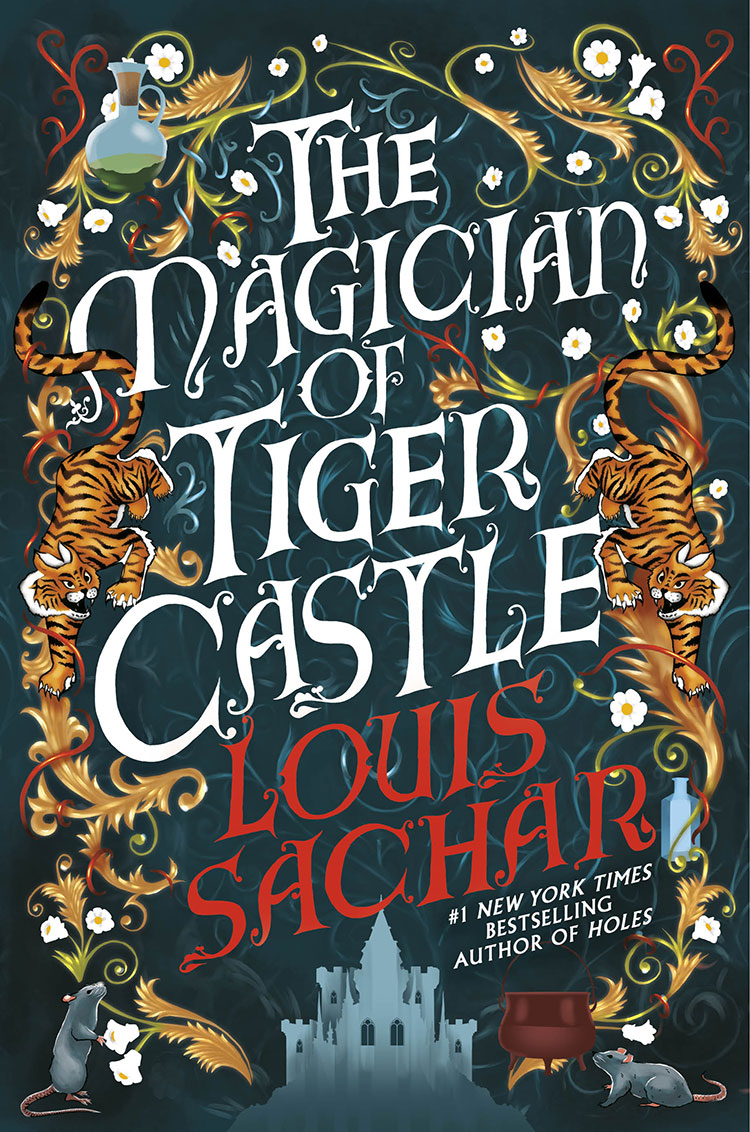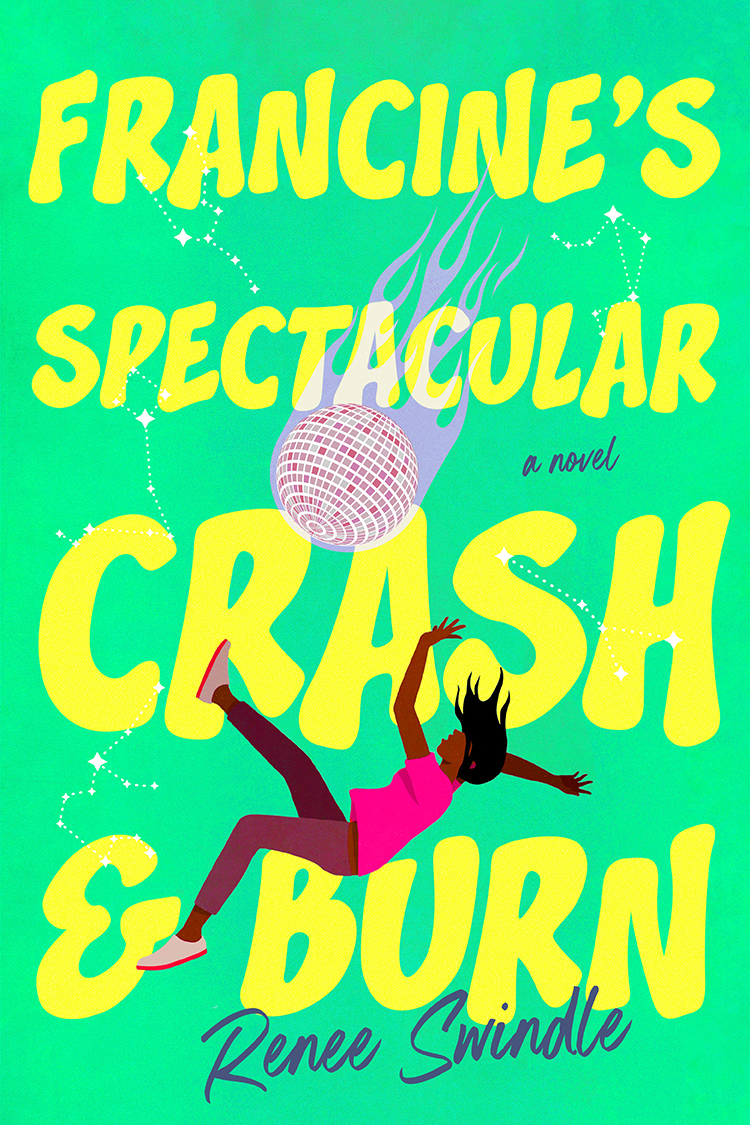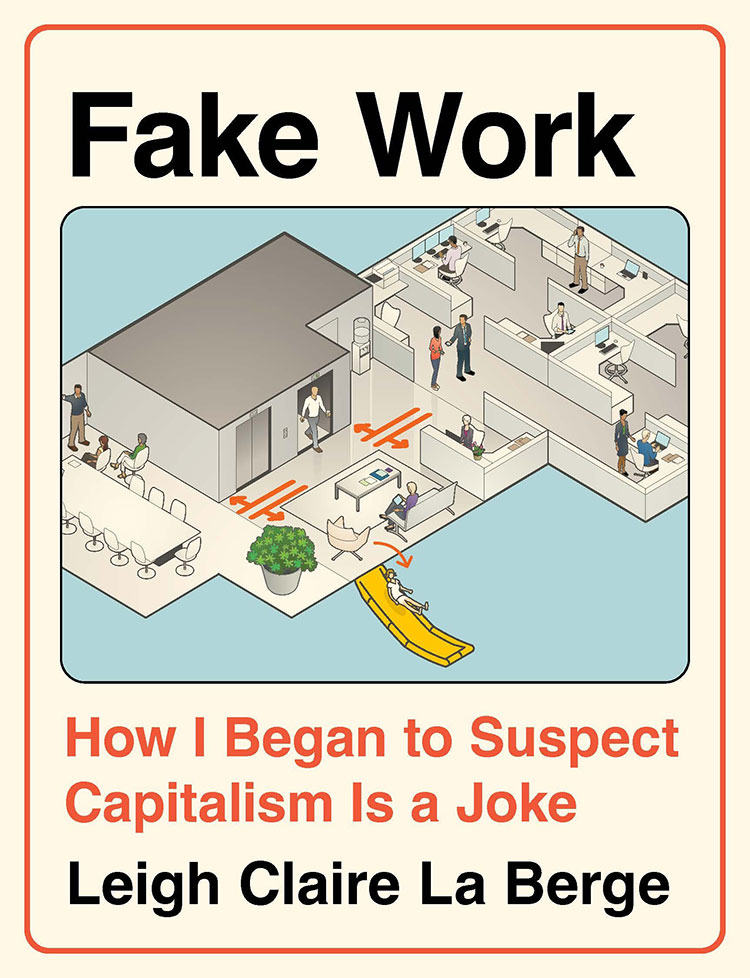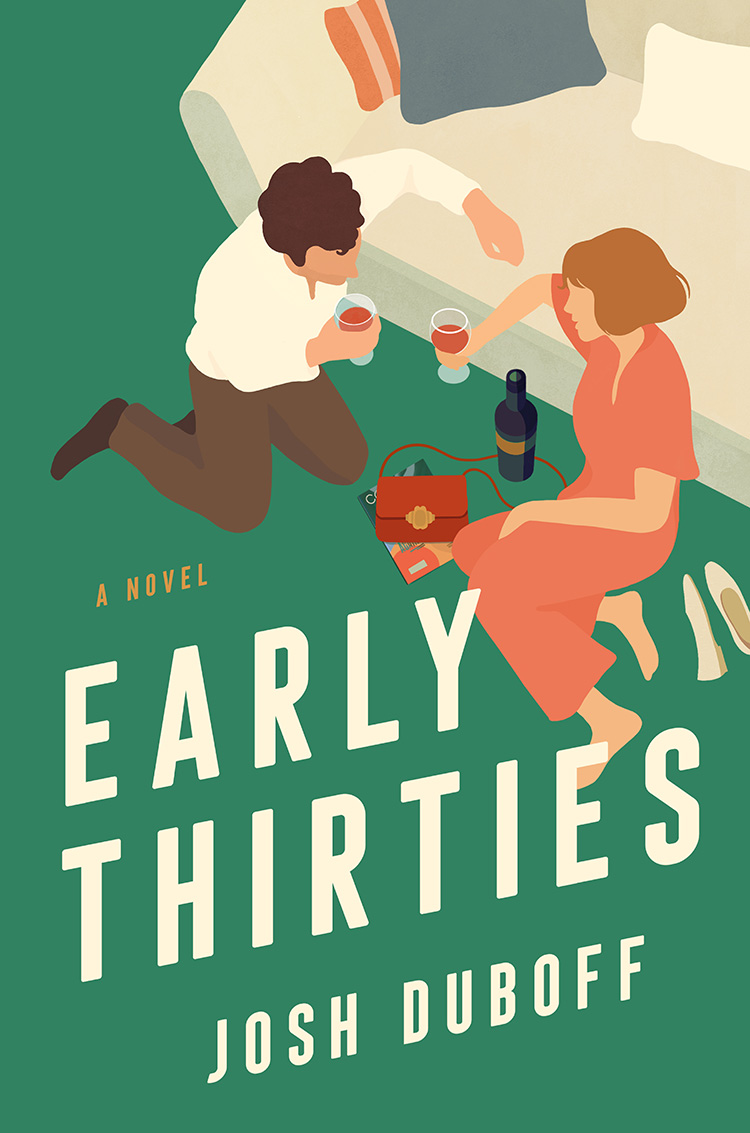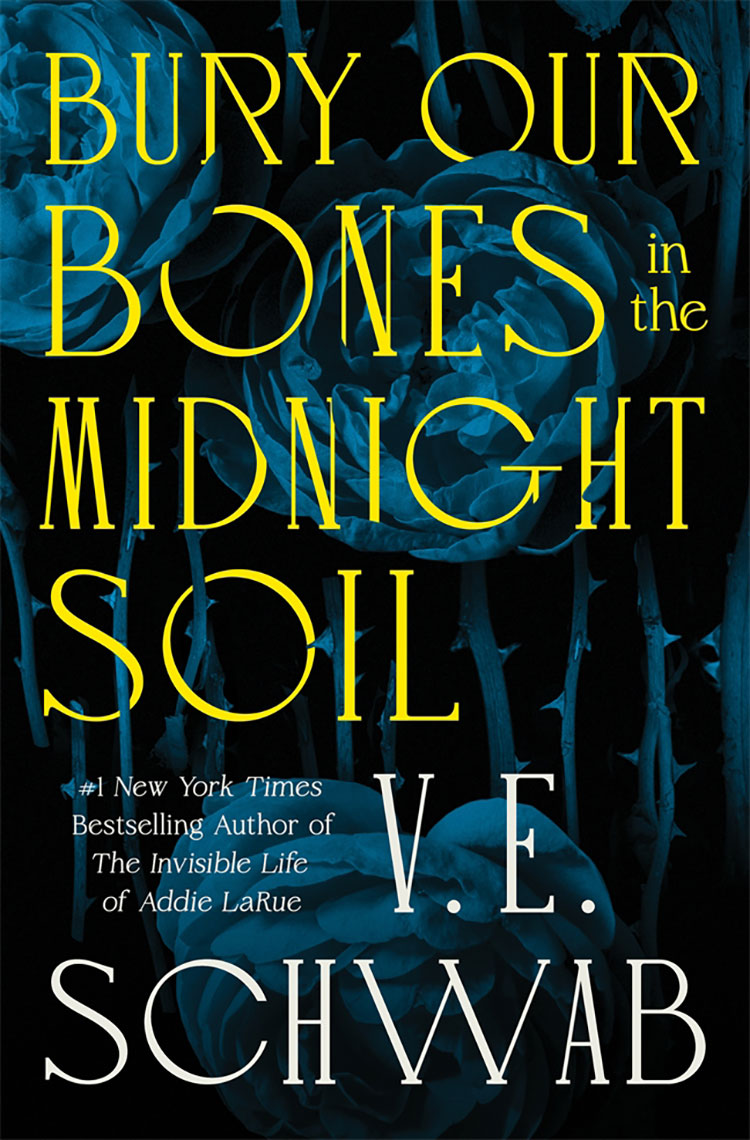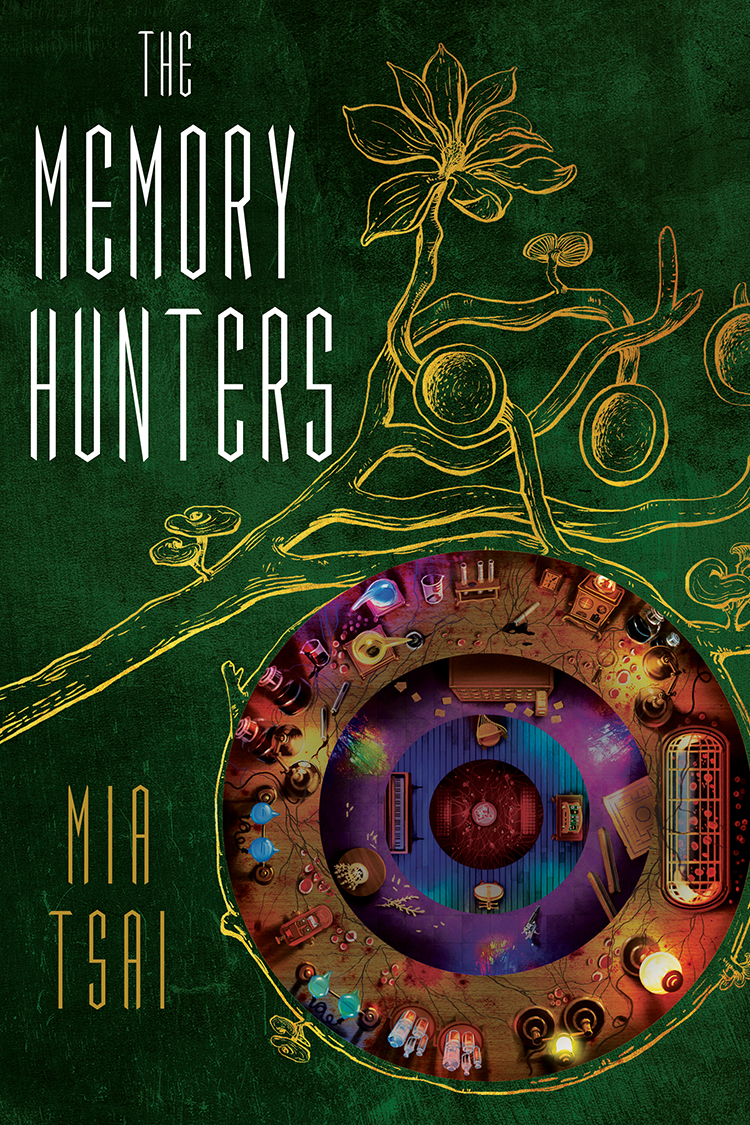
Eat, Drink and Remarry
Pub: September 30, 2014
Harlequin
Pre-OrderMR. RIGHT #1: A financier who “did deals”
MR. RIGHT #2: A fourth-generation German-Jewish funeral director
MR. RIGHT #3: A handsome, Ivy League–educated, award-winning actor
MR. RIGHT #4: Dr. Perfect, a cardiothoracic surgeon (and the official keeper)
Being an advice columnist means you’ve heard it all. What it does not mean is that you get everything right in your own life. Margo Howard, better known as “Dear Prudence,” then “Dear Margo,” can testify to that.
Eat, Drink and Remarry is the charming and candid memoir of a woman who goes from blushing bride to rice-scarred veteran. With wit, humor and 20/20 hindsight she reveals lessons learned from the men in her life. This no-holds-barred account is confirmation that understanding love, and of course people, comes only when we’re ready, and that sometimes it really is possible to start over and get things just right.
By now I was really conflicted. I wanted out of this debilitating marriage, but I had three kids under the age of five and wondered if there was not some last ditch effort I could make to keep things going and manage to stay sane. It dawned on me that maybe if I had an “afternoon friend” I would be happier. I decided — yes, I actually decided—that I would have an affair to see if that changed anything. I didn’t have anyone in mind, but I would look around. How hard could it be? I considered this a therapeutic experiment, honest to God. The idea was a deliberate attempt to determine if I could stay married.
It didn’t take long for me to land on someone. I was at a party when Coleman was out of town, and a good-looking married man who was not terribly bright was paying a lot of attention to me. He might as well have had a neon sign on his forehead that flashed “playboy.” He was clearly a member of the Lucky Sperm Club and prototypically “The Son.” His father owned a major manufacturing company in the automotive sector. We wandered into the bedroom where all the coats were and kissed a couple times. Then he asked me to meet him the next afternoon at The Standard Club. We thought we were being awfully clever by hiding in plain sight. Whoever might see either one of us in the lobby would assume we were headed to the dining room for lunch. The club had hotel rooms, of course.
Well, my therapeutic adultery didn’t exactly work out. The guy couldn’t get it up. There’s my answer, I thought, perhaps a sign from God . . . along with my realization that I didn’t actually have any interest in living that way. Even as a woman younger than thirty, I wondered how (older) women I knew could live so dishonestly. My intellectual aversion to this kind of behavior was not about guilt or morality; it just seemed that having an afternoon friend had a lot of potential potholes: discovery, disdain, falling in love, sneaking around and the likely underlying feeling that things still weren’t right. My gut feeling then became my professional opinion later: if a marriage is untenable and misery-making, the most productive thing to do is to work on getting out of that marriage. For many women—and it was certainly true for me—an adulterous diversion ultimately proves too complicated and therefore unsatisfactory as a solution because nothing really gets “solved.” All you have done is introduce a different set of problems, along with the need for secrecy. And if discovered, there can be painful consequences compounding the problems of a rotten marriage.
Now I was 0 for 2. Not only did I not pick a loving husband, I couldn’t even successfully commit adultery. I had one other ace up my sleeve. Maybe if I had a job I could override the domestic mess. I mean, I knew people in really bad marriages who basically did a work-around by having careers. Although I was not a writer then, I got an idea from George Plimpton, whose journalism was all the rage. I would write a book about doing ten glamorous jobs for women. I would do these jobs as a dilettante, for which I was certainly qualified. From our days in Lake Meadows, I knew Arnie and Zorine Morton. Arnie was the food and beverage manager for the Playboy Clubs, and to the food business born. His grandfather started Morton’s, the Chicago steak house. He was much older than his wife, but they had a young child, adding to the nursery on our floor. Because Gloria Steinem had already snuck in as a Playboy Bunny and written about it—much to Playboy Club’s displeasure—I asked for Arnie’s permission to have that be my first glamorous job. My pitch was that since Steinem had already done them dirt, what more could happen to them? Arnie agreed to let me proceed.
My next step was to see if such a book was viable. The charming Oklahoman who had extracted me from Harvard summer school a decade before was now an investment banker at Allen & Company. We’d stayed in touch, so I called and asked if he knew any book publishers who might tell me if my idea was any good. He was rather well connected and arranged for me to meet with the head of Random House, so I went to New York “to take a meeting.” It was agreed that my idea was good, but they would have to see the writing. After seeing the Playboy Club chapter they would decide whether or not to proceed with a contract. If it were a go, my editor would be Bennett Cerf’s son, Chris. Interesting, I thought . . . both of us young and the offspring of print celebrities. Only he was already working at Random House, and I had never written anything more substantial than a college term paper.
So off I went to make this happen. The fittings for the rabbit costume were excruciating. Those corseted Bunny outfits were somewhere between Spanx and an S & M getup — mostly the M. I could barely breathe. Luckily I had gotten my figure back after Cricket, but still. The way they made all the girls look busty was to put the cotton “tails” in the bra, with your own bosom resting on top, as it were. It was Arnie’s order that I be the photo Bunny who went around the club snapping pictures, probably wisely believing that it was too dangerous to let me carry a heavy tray of drinks.
Though not quite an armed camp, things were quite frosty at home. “Dysfunctional” I believe we would call it today. On my third and last night at the Playboy Club, Coleman showed up with his newish friend, Marshall Field V. Basically they had come to make fun of me. Because Marshall’s sister, Joanne, had become a friend of mine, we had enlarged our social circle. Coleman was pretty tanked up and essentially was heckling me. I was enraged. They left a couple hours before closing time—which was 2:00 a.m.
The comedian headlining during my three-day stint was Hank Bradford, the head writer for Johnny Carson’s Tonight Show. After the customers left, he said I looked seriously glum and asked if I’d like to have a cup of coffee. We sat down at one of the tables and I told this willing listener the drama behind my husband and his pal showing up. He was sympathetic and I was furious, and I was also grateful for someone to talk to. He asked if I wanted to come back to his hotel with him and I said yes, because I certainly wasn’t interested in going home. And unlike the man who I had previously attempted to consummate things with, this one could get it up.
Wishing to make a statement, I stayed out until eleven the next morning, a fact that had consequences I had never dreamed of. When I hadn’t come home, Coleman called the police and Arnie Morton. The police, of course, found neither me nor my corpse, but Arnie called me later that day, and now he was furious. He reminded me that I’d convinced him to let me work there to write a piece because, after Steinem, what more could happen? “Well,” he was hollering into the phone, “You know what’s worse than Steinem’s sneaking in as Bunny and then killing us? Ann Landers’s daughter disappearing from a Playboy Club!”
I wrote up my Bunny experience (minus the sleepover), and then put the piece in a drawer. This was no time to try to write a book. The act of writing, however, felt surprisingly rewarding. It was not a slog to get my thoughts on paper—in fact it was easy, which came as a surprise. My dilettante project, however, would have to wait. Like Caesar crossing the Rubicon, the die was cast. Now it was a question of when, and how.
One thing I did have in this marriage that was otherwise missing so much was occasional repartee that to me always sounded like movie dialogue. A particularly memorable event took place one night when Coleman was in the library doing desk work and drinking. There was something odd about our phone system that caused a short, muted sound to emanate from all the other phones whenever the receiver was lifted in one room. I was trying to go to sleep and heard that noise, so I picked up the phone. Hearing me pick up, Coleman ended the call he was trying to make. This happened about three times. I was now curious about whom he was trying to call. I finally succeeded without his realizing that I’d picked up and listened as the call went through. I then heard him tell someone that he would be arriving at the Beverly Hills Hotel around eight o’clock and would be in Bungalow (# whatever) and hoped to see her there.
“Who is this?” I said.
Coleman furiously tried punching the hook switch buttons to end the call, but because another extension had the connection, the call was not ended.
“Well, who is this?” asked the “someone” on the other end of the line, who sounded like a Judy Holliday clone.
“This is Mrs. Coleman.”
“He said he was divorced!” she cried.
“Well, he’s gonna to be,” I said. At which point Coleman came racing into the bedroom and said it was not what it sounded like.
“Goodnight,” I said, and went to sleep.
The next day, a nice young man who worked for Coleman paid me a visit. He explained, essentially, that he was mortified, being a married man and all, but the call to the someone had been on his behalf, and he felt he had no choice but to confess because he did not want it to look like John was arranging a rendezvous for himself. I told him he was really nice — and loyal — to come tell me this, but I did not for one minute believe him. Coleman, by the way, was known to be murder to work for. I was not the only one in therapy because of him. His executive assistant, a wonderful woman, wound up seeing a shrink simply to keep her job and not go berserk from his machinations and unpredictable behavior.
Soon after that night, things really started to move. For a while Coleman had been coming home at five or six in the morning. I had a strong hunch he was at Joanne Field’s. We had been socializing quite a bit with her and her friends, and I’d noticed two things: 1) she and Coleman seemed to have a connection that went beyond friends at a party, and 2) she could also match him drink for drink. One night at about midnight, I drove over to her apartment and—sure enough—there, parked in front of her building, was his car.
It was that confirmation that led me to contact a heavy-hitter divorce lawyer, Ben Davis. In those days, proof of adultery was the best way to get out of a marriage “advantageously.” Davis felt we should engage a private investigator, and a meeting was set up at his office for me to meet the head of the agency. He was a lovely man, and I felt very comfortable with him. We talked about Coleman’s traveling and Joanne’s city apartment, as well as her homes in Hobe Sound, Florida, and Peterborough, New Hampshire. It was agreed that when I was certain they were together, a PI from the agency would get photographs. When I said his preferred hotel in New York was the Carlyle, the head of the agency said, in that case, because their lobby was so small, he would need to choose two preppy-looking guys so they would not look out of place and call attention to themselves. I do not know why these people traveled in pairs, but I didn’t much care because, ultimately, Coleman would be paying the bill.
Now my life became a soap opera. I had to continue as if I didn’t know of his affair with Joanne, and give no clue that I was lining up my ducks to end the marriage. Then one day he announced that our whole family, with Jackson, of course, was going to Hobe Sound as Jo’s guests! I’ll say this: the guy didn’t lack froideur.
The strain of this mess was such that I was losing weight and down to 104 pounds. I thought I looked fabulous; Mother thought I had cancer. She did not know all the details of what was going on, but she knew some: most significantly that I was done with the marriage — just as she and my father had predicted — and was planning my exit, using Joanne as a way to get out. Jackson knew everything, both because she lived with us and because she was, in a way, a surrogate mother to me as well as the children. I told Ben Davis about the proposed Florida trip and said I didn’t want to go. He encouraged me to go ahead with it, though I am not sure why, and I complied. I asked if the PIs could use this trip to advantage. He said no, Hobe Sound was such that they couldn’t even get on the island and hang around Jo’s house without causing notice. This was a hellishly difficult trip for me and I actually slept with a knife under my pillow thinking (obviously somewhat paranoid) that if they were so bold as to arrange a trip like this, why not do away with me, as well? The dynamic was clearly meant to be punitive, if not cruel. The two of them behaved as though I were not there. One thing I did pick up from this hideous trip, however, was that Jo talked a great deal about her house in Peterborough. This suggested rather pointedly that Coleman would wind up there, most likely in the near future.
Returning to Chicago, I met with Ben Davis and told him I was pretty sure my erstwhile girlfriend and my husband would soon meet up either in New York or New Hampshire. He arranged with the head of the agency to have two men in New York with him when I informed them that Coleman had left. If Coleman and Joanne wound up in Peterborough, two more men would join the group, and I would accompany them from Chicago. Only Jackson and my mother knew about the plan.
How was this paid for? I certainly couldn’t, at this point, have the bills sent to Coleman’s office, as was my habit. So I asked Mother if she would front me the money —at which point I had to tell her I was now positive he was running around and that it was with my pal, Joanne. Mother felt that direct payment from her would be unwise, so she enlisted her good friend Bob Stolar (whose house I’d stayed in during my Washington internship) to pay those bills.
Sure enough, not too long after we’d returned from Hobe Sound, Coleman announced he was going to New York on business. As I watched him pack, I noticed he threw in a few crew-neck sweaters. One seldom needs casual clothing for Wall Street so I knew he was going to Peterborough. I called Ben Davis to tell him that Colemena would soon be off to New York, and the two preppy PIs were dispatched. Then I told Ben that Coleman would go on to Peterborough, and he asked how I knew that. When I told him it was because he packed crew-neck sweaters, he said he could not in good conscience let me spend all that money on the extra detectives based on sweaters. I remember telling him, “Ben, you ain’t never been a woman, and they don’t call it ‘women’s intuition’ for nothing.”
The two guys who were on Coleman’s tail in New York would phone in reports to Davis, who would then phone them to me. He was seeing no women. The only thing they couldn’t figure out was one meeting where Coleman’s limousine rendezvoused with another on the New Jersey Turnpike. Now I was really screenwriting in my head. He was a drug dealer! He was the money manager for the mob! Why couldn’t he be just a regular straying husband, like all the others?
Two days later “the boys” phoned to say they were on their way to the airport. The next call said they were at a small feeder airline. They were going to Peterborough. The New York twosome would go and check into a motel there. It was off-season, so getting a room would not be a problem. Then, arrangements were made for me to meet my twosome at O’Hare the next day.
I was strangely exhilarated. I wore dark glasses, feeling certain that everyone in the airport knew about my mission. The two investigators and I flew to Boston, and we then rented a car for the hour-and-a-half drive to Peterborough. Early that evening we three joined the New York duo at the motel. Having their pick of all the rooms, they chose one at the front so they could observe the road.
My duo and I learned that early on that morning, the New York guys, who had made it to Peterborough by then, had observed a painter’s truck that drove by about 7:00 a.m. They followed it and saw that it parked at Jo’s house. We assumed it had to be Coleman. But Ben’s had instructed us that we could not force our way into the house: we must be admitted. So we brainstormed during the night, discussing how we were going to get into the house. I landed on the idea of our being a Life magazine crew—if questioned—making the cameras somewhat explainable. Five strangers being “welcomed” at seven in the morning, one of them with cameras hanging around his neck, posed a definite complication. Because so many places were closed, we “dined” and snacked from the machines offering candy bars, coffee, and soft drinks. The best any of us could do was to take catnaps. Believe me, you don’t experience adrenaline like that until you’re a woman on a mission with four private detectives.
At about 6:00 a.m., I went into our communal bathroom and started putting on full makeup. After I was in there for about 15 minutes, one of the guys knocked and asked if I was alright. I said I was just fine. When I emerged they all looked at me—and one of them actually whistled. I did look quite fab — certainly for 6:30 a.m.
“What is this about?” they asked. It was remarked that this was quite unusual because most of their clients, when in similar circumstance, were weepy, nervous wrecks and looking rather haggard.
“He is going to remember this morning,” I said. “And a girl always wants to look her best.”
To this day, I can’t really fathom how I took control of the situation, but when the painter’s truck drove by at 6:55 a.m., I said, “Let’s go.” We pulled in a few minutes after the painters and knocked on the front door.
“We’ve come to surprise Mrs. Langdon,” I said to the housekeeper, which was certainly the truth. (Langdon was her second husband’s last name, from whom she had divorced.)
We five trooped up the stairs, figured out which was the master bedroom and opened the door. There was Joanne, in bed. Alone.
“Well, we’re all here, aren’t we?” she said.
“Yes, but where’s the rest of us?” I asked, as coolly as I could, given my surprise at not finding Coleman in the room.
“Down the hall,” she said, as if nothing out of the ordinary had just occurred.
All the while the “photographer” was snapping shots of her in bed. Finally she said, “That’s enough pictures.” We all then marched down the hall, opened another door, and there was Coleman, in bed. The photographer got busy again. When he was done with those pictures, they left the room.
“Well, now you’ve got what you want,” I said to Coleman. “You are going to be single again.”
“You’re what I want,” he said and then added, “I knew you would come.”
I knew Jackson didn’t tell him, but perhaps calling at a late hour and not finding me at home gave him a clue. I didn’t know, and I most definitely didn’t care.
Our business finished (and with no breaking in necessary!), the PIs and I went to a roadside diner for breakfast. We sat in a big booth with one of those individual jukeboxes. I put in money and played a few songs. My “associates” were dumbfounded. They said in previous situations like this, the women were basket cases, but I seemed euphoric. Which is exactly how I felt.
I called my mother after breakfast and told her things went really well — except they were not in bed together. That would have been nice. (I never did understand exactly why. Who has an affair but doesn’t share a bed, anyway?) Nonetheless, he was in her house. Mother asked how I was. I told her I was terrific. She said she’d probably never understand me, how little things could throw me for a loop but I could sail right through the big things. I really was happy as a lark for the first time in many years.
Our gang drove to Logan Airport and flew to Chicago. When I got home, guess who was standing in the foyer? Indeed, the man of the hour.
“What took you so long?” he asked.
Well, I told him, we had to get to Boston and get on a plane.
“You should have come with me,” he said. “I chartered one.”
Then the lawyer meetings started. He said he was going to sue my analyst for alienation of affections. (I am not kidding.) His resistance to a divorce was not because ours was the love story of the century; it’s that he wanted to keep things as they were. The children and I were like props in his play. And of course he did not wish to lose my parents as in-laws.
We finally hammered out a divorce agreement, and I went along with joint custody because his interest in the children was so minimal that agreeing to any kind of shared custody was meaningless. The settlement was not exactly what I (or anyone else) would call equitable, but nothing would change about the way I lived, and ultimately I was pleased. Furthermore, he would pay the children’s bills off into the sunset. He asked for all the valuable art, no doubt expecting a fight. I said fine. The way I looked at it was that he had selected it, it was his money that paid for it, and, to be honest, I thought it was an effective way to make the statement that it was worth anything to get rid of him. It was definitely a “fuck you” message, whether he understood it that way or not.
Once everything was worked out, Coleman begged me for another chance. He essentially said, “I can do better. We can be a family. I’m going to get a weekend house, and you have to give me a chance, if only for the children.” There was a legal mechanism by which I could keep the settlement we had agreed to in place while co-habiting, so I thought what the hell? Let’s see what he can do, though I was beyond skeptical at that point.
My idea of a weekend house was a little A-frame in the woods. Coleman’s was the Swift estate in Lake Forest, across from the Bath & Tennis Club on Green Bay Road (where he certainly would not have been welcome, as it was then restricted). The house was what Abra, then almost eight years old, called “an English two-door mansion.” It was on ten acres of land with a pool, tennis court, and greenhouse. And he bought it furnished, so at the beginning of the summer we moved our act to Lake Forest: Coleman, me, the kids and the domestic staff. Of course, nothing changed except the scenery. He was still absent, still chilly, and I had my answer. I went back to the city earlier than I’d planned because I had a scare one night (with no Mr. Coleman in residence and not related to our marital issues) when I heard a voice somewhere on the grounds.
“Heeeelp me! Heeelp me!” it sounded like someone was screaming.
I called the police department and identified myself, telling them that someone was being assaulted on my property.
They said they’d be right over, so I went to my second-floor bedroom window, where I was easily spotted, wearing a white nightgown. I saw them drive onto the property and they saw me in the window. After about ten minutes they returned to the house, and like Cyrano delivering his message to Roxanne, one of the officers said to the lady in the window: “There is no one on the property, Mrs. Coleman. Two of the Boardman’s peacocks got loose, and that’s the noise they make.”
The next day we packed up and I knew once and for all I was a city girl. And soon to be a single one, at that. I did have a moment of concern for the gardener. Three of the four families who had lived in that house had divorced, so the poor guy never knew who he would be working for.
Though I may not have been aware of what I was doing, I had put myself through the test of deciding when enough is enough. Over the years countless readers wrote to me, asking, in essence, “How do you know when things are unfixable, and how do you know when enough is enough?” All marriages, certainly, involve putting up with things you wish were different, making allowances and figuring out where irritants fit on the importance scale. Sometimes a rocky marriage can be repaired, and sometimes it can’t. I think a person knows when it’s not worth trying anymore if, in the dark of night, they just know that anything would be better than what’s going on. Making that determination is not unlike the Supreme Court decision regarding pornography: you may not be able to define it, but you know it when you see it.
Age also figured into the equation for me. When I called it a day with Coleman, I was twenty-eight years old, with far more of my life in front of me than behind me. I have advised older women in precarious financial circumstances to remain legally married but to make themselves scarce. Individual values figure in, as well. Some people just want to be married, no matter the baggage. Others must consider money. And the truth is that people have varying thresholds of pain and tolerance. In any event, the tests I put myself through during the course of our marriage were: trying to live my own life while ignoring him; considering lifestyle poultices (i.e., an affair, a job); and deciding, with a therapist’s help, that I could, and would, make a life on my own, if necessary. I had not one doubt that divorce was what needed to happen next.
When we separated I was in the enviable position of not having people wonder what went wrong or whose “fault” it was. Everyone knew why I unloaded him. The children seemed unsurprised by it. The younger two didn’t even know their father very well, and Abra, when I told her, said, “You know, Mom, he doesn’t tell the truth.” Some years later, all three of them said that they never could see their father and me together. I do think that Abra felt the backwash of the divorce in ways the younger two did not, and this did indeed manifest later. I know from my work, and from friends, that there is often one kid who suffers from a divorce more than the others, and often it is the eldest. It frankly never occurred to me to keep it together “for the children.” I am convinced that a tension-free home with one parent is preferable to a situation where there is fighting or frost, and I always advised such to anyone who wrote to me, asking for my opinion on this matter.
Alas, he did not go quietly. Instead, he checked into the Menninger Clinic in Topeka, Kansas (a fancy psychiatric hospital where my mother was on the board!), and embarked on eighteen months of therapy. That is a pretty long time to try to deal with your “issues.” My guess is that he believed I would not go ahead and divorce a guy who was in the bin.
He guessed wrong. Not only did I continue with the legalities, but I also would not go visit him, as he requested. I simply could not have a guy in an institution begging me to give him one more chance. I did, however, send the children, with Jackson, to visit him. One day his social worker called to say she understood I was not coming down. That was true, I told her, though I did not wish to impede his treatment and would gladly talk to her on the phone about anything she wished. (I never thought he went with a pure heart, and my father said he parked himself there to sit out a bad money market.) In any case, during my first —and only—talk with the social worker, I asked if he had mentioned his alcohol problem. “His what?” As I said, I did not think he went there with a pure heart.
When he did choose to return to Chicago, he took an apartment on Lake Shore Drive. After a two-year separation, we were finally divorced, and Coleman married Joanne Field Pirovano Langdon shortly thereafter. That marriage lasted a grand total of thirty days and then was annulled for reasons unknown to me.
Later, about fifteen years after we’d been legally divorced, he was richer than ever. He was, in fact, one place off the Forbes 400 list, sort of like a runner-up. But as he continued to get richer, he also continued to spend more money paying lawyers. His litigiousness really heated up, and he seemed to thrive on suing or being sued. There was even a story written about his serial engagement of dozens of law firms in American Lawyer. He became notorious for not paying his bills, which was the reason he had to deal with so many law firms.
Coleman went on to make some high-profile hotel investments — notably buying the Navarro in New York City and the Fairfax in Washington, D.C., to make them Ritz Carltons. He was a pioneer in boutique hotels, starting with buying the Whitehall Hotel Chicago, and then buying the Chestnut Towers, which he renamed The Tremont (after a famous street in downtown Boston). Whether it was because he wore out his welcome or because bigger ponds beckoned, he moved to Washington. Then he moved to New York, remarried a fourth time, and had two more children. He later divorced his fourth wife and lived through a widely publicized bankruptcy, from which he recovered, to a degree. For perhaps multiple reasons, his fortune diminished, the art was sold, and he went from living in grand apartments to living in hotels. The kids said his spending was driven by manic episodes and his reputation was such that “doing deals” was no longer in the cards.
Over the years (even now, 44 years later!) people who either knew him or his reputation have asked how I could have been married to him. I have never had a good answer to the question. With all the pushback about my decision to marry him — and my rejection of it — I was, in retrospect, exercising my prerogative to make my own decisions. I was flying in the face of good judgment because I’d gotten it into my head that I was right and “they” were wrong. Like Icarus, I displayed hubris. I had simply made up my mind, and with the recklessness of the young I could not imagine getting burned.
My determination to prove everyone wrong was certainly a denial of the obvious. And with this particular man there was the aspect of tying my wagon to someone who was “different.” God knows I had never met anyone like him. I was being the adventuress with zero thought of any consequences or any consideration that all the people who told me not to go through with it might be right while I be proven wrong. Trying to make sense of that disastrous marriage from the vantage point of time, analysis, and, I hope, wisdom, it is clear to me that I saw Coleman as a challenge, whether I acknowledged it or not. He was a reclamation project, for sure. At an unconscious level, I must have found him dangerous (which he proved to be, for my mental health) but at the same time mysteriously exciting and smart. The “good” prototype for this was my father, who was successful, smart, and exciting, but what my father was—and Coleman wasn’t—was a charismatic, warm person and a loving father. Clearly I was coloring outside the lines with Coleman in a deluded “I know best” mindset. Such difficult, unreachable men come with a price tag, and often a fatal flaw.
Bucking my parents — particularly my mother—was an aberrational anomaly in my life. With hindsight, I believe it to have been a misguided attempt at independence and autonomy. How I wish I had acted out by, say, remaining unmarried until I was thirty!
You’ve just read an excerpt from Eat, Drink and Remarry.




